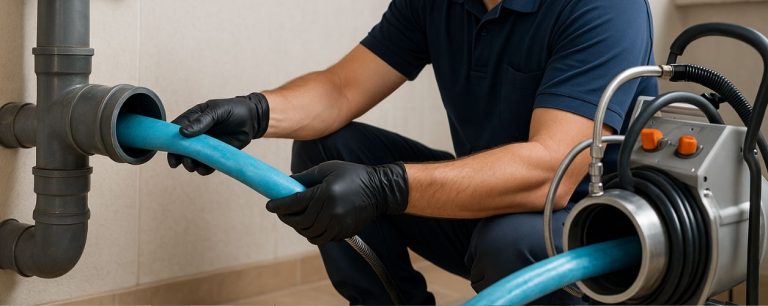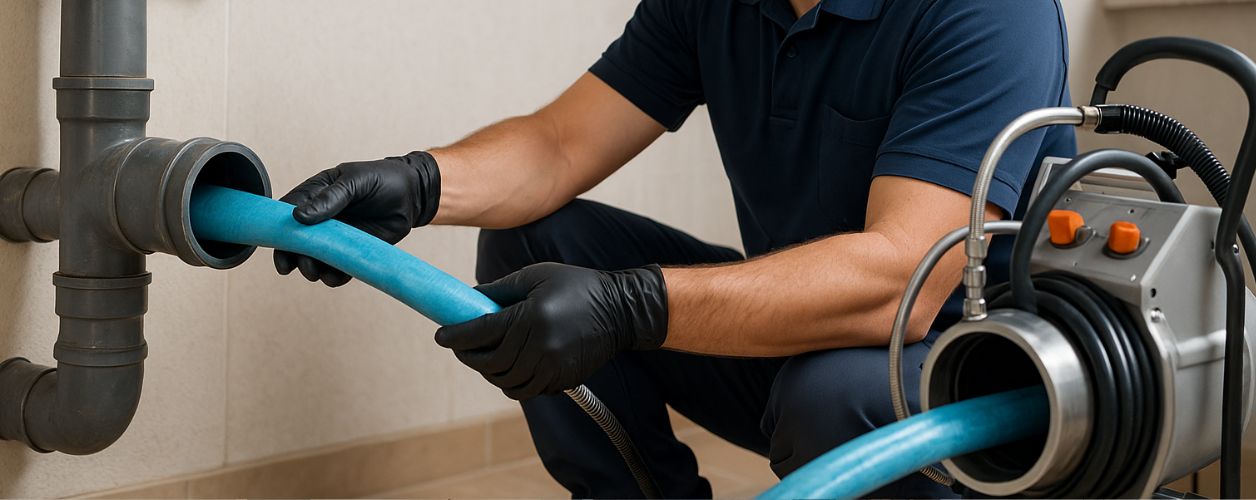
Many of the older homes in beautiful old Sydney, often found in the Inner West and other heritage suburbs, do have a style of charm that new builds are unable to provide. And together with their classic architecture, homeowners are faced with the challenge of an ageing plumbing system. These homes continue to use prehistoric clay or cast-iron pipes whose life span has already been outlived. Because of this, householders are often faced with leakages, blockages, as well as breakdowns of the plumbing system in their structures.
This is why more residents are asking about Pipe relining Sydney services. Using trenchless technology, the plumbers can rehabilitate without destroying gardens, pathways, and driveways as they dig to restore the pipes. GPS Gas Plumbing Services can attend to the musty problem with modern techniques such as pipe relining, which is long-term and less invasive.
To assist you in knowing whether relining is the suitable method to use in your property and handling pipe bursts with emergency relining, we have come up with the most frequently asked questions by Sydney homeowners about pipe relining.

Top 8 FAQs On Pipe Relining Sydney Homeowners Ask
Checking FAQs is a great way to learn about anything. Here are the top 8 FAQs on pipe relining:
What is relining of pipes, and how does it work?
Pipe relining refers to one of the advanced plumbing techniques that is used in repairing the existing pipes without necessarily excavating the whole area. As opposed to opening up the old pipe and replacing it, a solid liner is placed into the damaged area and covered in a special mixture of resin. After being inflated, the liner is filled with resin, which is left to cure the damaged pipe after forming a new, durable, tough pipe within the old one.
The biggest advantage of this approach is that it is a trenchless pipe repair method. This implies that you will have no reason to worry about your driveway breaking, your garden being dug over and your bathroom tiles being smashed. Such a non-invasive factor plays a huge role in the minds of heritage homeowners in Sydney, as it does not affect the appearance and the integrity of the property.
How do I know if my home needs pipe relining?
Recurrent plumbing problems will most probably serve as the initial indication. The problems, in most cases, are revealed to be ageing materials. Old properties were built in clay and cast iron over 50 years ago. Gradually, these pipes wear out, crack up, and leak.
Additionally, if you are experiencing blocked drains, Sydney plumbers are constantly being called to fix foul odours from sinks, gurgling noises, water backing up, or pipes that are cracked or invaded by tree roots, then you should check with a plumber to confirm if your home needs pipe relining.
It is honest to say that pipe damage is one of the main reasons for pipe relining.
Is pipe relining suitable for older and heritage properties?
Older houses are the greatest beneficiaries of this technique. Heritage properties will have mature gardens, sandstone surfaces or terracotta courtyards that cannot be destroyed by conventional excavation. Lining restores the pipes internally, where there is no disruption.
A typical manifestation of this is, in one instance, one of our customers in the Inner West of Sydney had a Federation-style home that had a sandstone pathway, which led to the entrance. Under normal circumstances, such a replacement will require the excavation of the whole premises to replace the pipes. GPS Gas Plumbing Services carried out a relining in its entirety. The pathway was saved as it was, and saved the owner the expense of restoration work, as well as retaining the presence of the historical feature of the property.
How long does pipe relining last?
Durability is an issue of concern to homeowners. The most up-to-date relining procedures have been used for over 50 years. The epoxy material used in the liner is corrosion-resistant, root intrusion-resistant and crack-resistant.
Families of Sydney enjoy the peace of mind that comes with the knowledge that after their pipes have been relined, they will not have to bother about unblocked and unclogged pipes or repaired leakages, at least for a few decades.
How much does relining a pipe cost in Sydney?
The pipe relining cost Sydney homeowners should expect generally ranges between $400 and $1,000 per metre. Several factors affect the cost of repair and services, some of which are dependent on the pipe diameter, access, the extent of the damage that exists and the distance of the repair section.
Although this pipe relining pricing in Sydney might seem high to some homeowners at first, it tends to be more cost-effective than conventional replacement. A complete excavation can give the impression of being cheaper in terms of price per metre, yet when labour, landscaping work to repair the damage and extra structural works are taken into account, this cost can quickly be doubled.
Older homes suffer the cost advantages conclusively compared to replacements; hence, relining is the best option when people want to save money and preserve their property.
Is relining cheaper than replacement in the long run?
Conventional substitution entails major digging up, and this takes time in labour and at times leads to expensive repair works. Rebuilding stone walls, re-paving paths, and replanting gardens are some of the requirements of heritage homes.
When relining is done, these costs are avoided. Since the procedure is minimally invasive in character, there is no need to renew landscaping or flooring after the work is done. Additionally, relined pipes are less likely to suffer recurring blocked drains. Homeowners can break even with the cost of investment within a couple of years of maintenance costs.
Does pipe relining have environmental benefits?
Trenchless pipe repair creates less waste than traditional replacement because old pipes remain in place. The stainless smooth epoxy liner also enhances the movement of water, thereby minimising the accumulation of debris and the possibility of blocking.
How quickly can pipe relining be completed?
Time lapse is a subject of concern to a homeowner. Conventional replacement may take days or even weeks in case of complexity. Replacing the pipes can normally take one to two days. Thus, several factors determine how long pipe relining lasts. You can ask your hired professionals to guarantee that most of the projects are accomplished within a short time with minimum interruption to your home. Experts deploy CCTV drain cameras to determine where the damage is and the most effective repair solution to minimise the pipe relining time.
What Other Questions Should You Check About Pipe Relining?
- Can pipe relining be done on all types of pipes, including PVC and copper?
- Is the relining process safe for drinking water pipes?
- How does weather (rain, extreme heat, cold) affect the relining process?
- Do I need to move out of my home while pipe relining is being done?
- What warranties or guarantees do professional plumbers offer for relined pipes?
- Will pipe relining reduce the water pressure in my home?
- Can small sections of a pipe be relined, or does the whole pipe need to be treated?
- How do plumbers check if my pipes are suitable for relining?
- Does pipe relining work for vertical pipes or only for underground drains?
- What kind of maintenance is required after pipes are relined?
Conclusion
Sydney has architectural gems in its older and newer houses. Pipes made of clay that crack and those made of iron that rust are but a few problems that one can expect in old houses located in Sydney, so it would come as no surprise that many inhabitants of such houses are in search of the most reliable solutions.
With pipe relining Sydney services, homeowners can protect their properties without the upheaval of traditional replacement.
If you have been struggling with blocked drains or are concerned about the condition of your ageing pipes, contact GPS Gas Plumbing Services today. Our team specialises in trenchless pipe repair, providing affordable, fast, and non-invasive solutions that will secure your home’s plumbing for decades to come.


